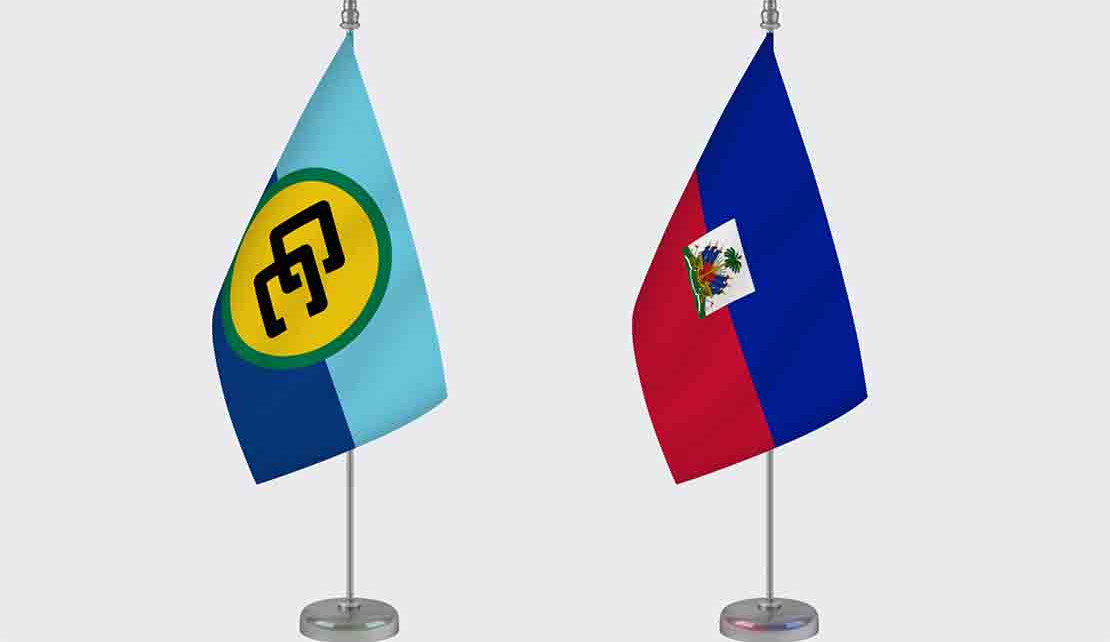CARICOM congratulates Haiti on its 220th Independence Anniversary

GEORGETOWN, Guyana, January 1, 2024 - The Caribbean Community (CARICOM) has congratulated Haiti on its Two Hundred and Twentieth Anniversary of Independence which it celebrates on 1 January 2024.
Secretary-General Dr Carla Barnett sent the following congratulatory message to the Prime Minister of Haiti, H.E. Dr Ariel Henry:
Honourable Prime Minister, the Caribbean Community congratulates the Republic of Haiti on the occasion of the Two Hundred and Twentieth Anniversary of Independence.
The Community recognises the historic significance and profound impact of Haiti’s attainment of independence in 1804. As a nation forged on the ideals of liberty, equality and fraternity, Haiti has a long and proud history of unyielding strength and perseverance.
As a Community, we celebrate our shared identity and Haiti’s rich cultural heritage and diversity captures the creative, resilient and unwavering spirit of all our people.
CARICOM stands in solidarity and partnership with the Republic of Haiti in furthering initiatives to achieve a peaceful, prosperous, and sustainable future.
CARICOM will remain steadfast in its support for the welfare of Haiti and the efforts of the Haitian people to overcome challenges and to advance national development.
Just as the proud legacy of Haiti’s independence has shaped the Caribbean region, the stability and prosperity of Haiti is important for the furtherance of regional integration, security and the sustainable development of the Community at large.
Honourable Prime Minister, please accept our heartfelt congratulations and be assured of the Community’s continued resolve in working with Haiti towards building a shared future of peace, prosperity and well-being for generations to come.
Haiti made history by being the first country in the Western Hemisphere to abolish slavery on January 1, 1804. Slavery was abolished in the British Empire in 1838. Ancestors’ Day and Independence Day are commemorated on the first two days of the calendar year.
January 2 honors the founders of the nation and the people who sacrificed their lives during the fight for independence. The world was shocked as the Haitian Revolution happened. They refused to believe that former slaves understood the depths of freedom any more than they did.
Despite both the Americans and the French proclaiming that all men are created equal, they didn’t arrive at the natural conclusion that racial discrimination and slavery are gross violations of basic human rights.
To this day, the Americans are still trying to find a way to justify the slave society on which their economy was built, despite officially abolitioning chattel slavery in 1865, yet officially maintaining black subservience within the US through its "Jim Crow" system until way into the 20th century.
Haiti’s independence shattered the world’s understanding of liberty and freedom. The monumental event holds global historical significance and will continue for centuries to come.
In 1825, barely two decades after winning its independence against all odds, Haiti was forced to begin paying enormous “reparations” to the French slaveholders it had overthrown.
Those payments proved to be a staggering burden for this fledgling nation, which had the unfortunate distinction of being a republic formed and led by blacks who’d risen up against the institution of slavery.
As such, Haiti’s independence was viewed as a threat by all slave-owning countries –to include Britain, the United States, and the Netherlands among others.
Thus the impoverished nation of Haiti had little choice but to accede to France’s reparation extortion demands, which were delivered to Port-au-Prince at gun-point by a fleet of heavily armed warships in 1825.
By complying with the extortion, Haiti gained immunity from French military invasion, relief from political and economic isolation – and a crippling debt that took 122 years to pay off.
The paying off of this extortionary debt was not only the remit of the Haitian government, but was also the burden of every Haitian household as every citizen was urged to reach into their own pockets to help their government raise the amount that was still “owed” to France.
Thanks to the voluntary contributions from the thousands of Haiti’s citizens, most of whom were desperately poor, The $21 Billion extortionary debt that Haiti had to pay France To Preserve Its Independence was finally settled in 1947.
However, the many decades of making regular payments had rendered the Haitian government chronically insolvent, and became the root of Haiti’s misery thus helping to create a pervasive climate of instability from which the country is yet to recover.
-30-
